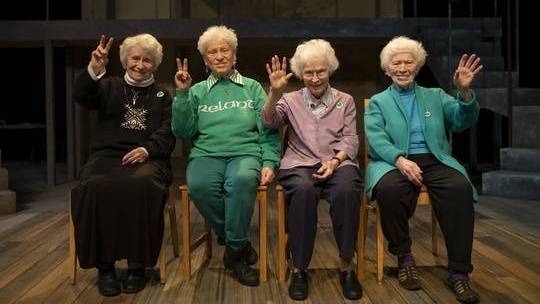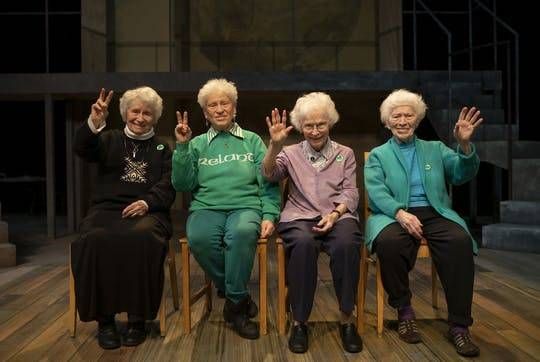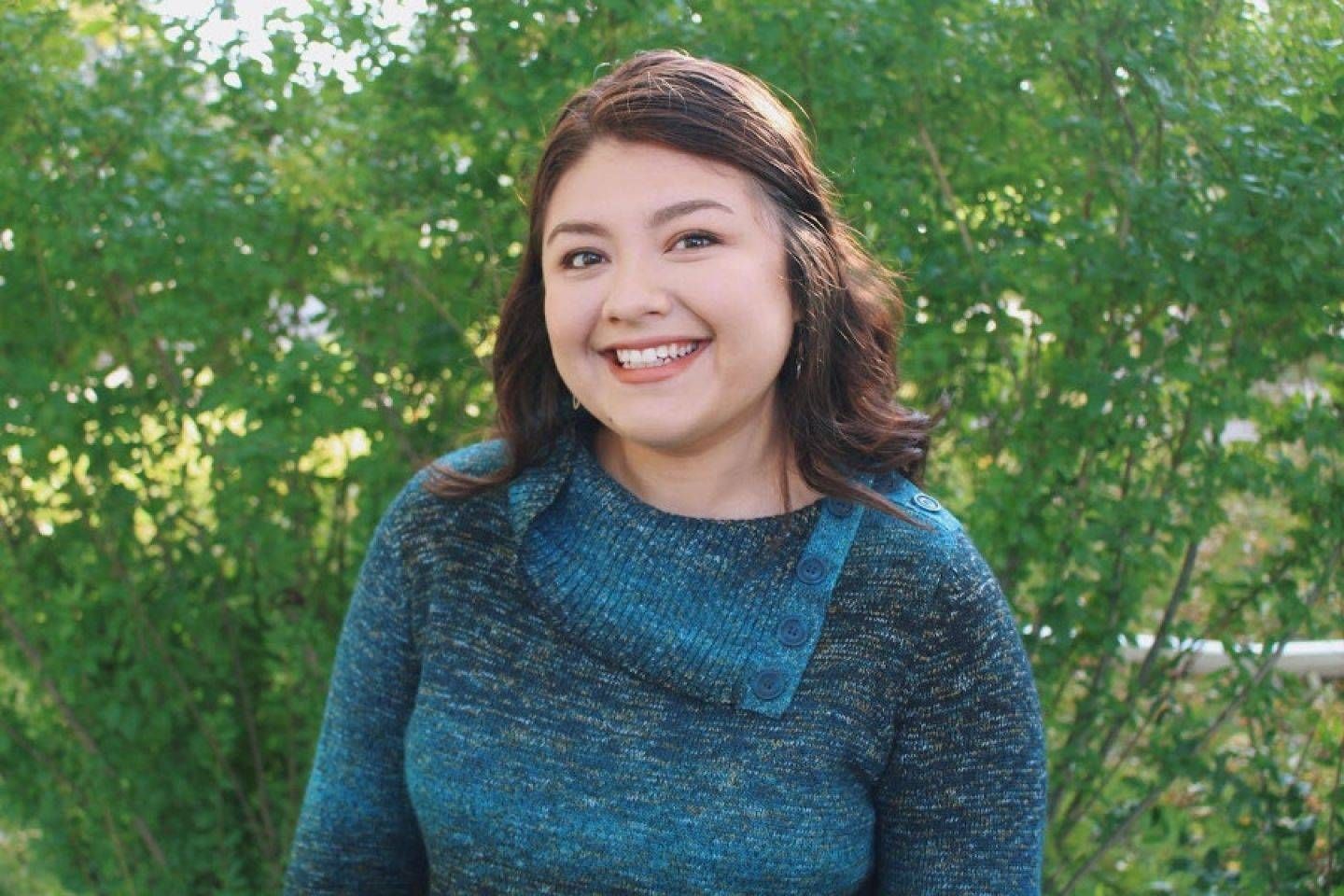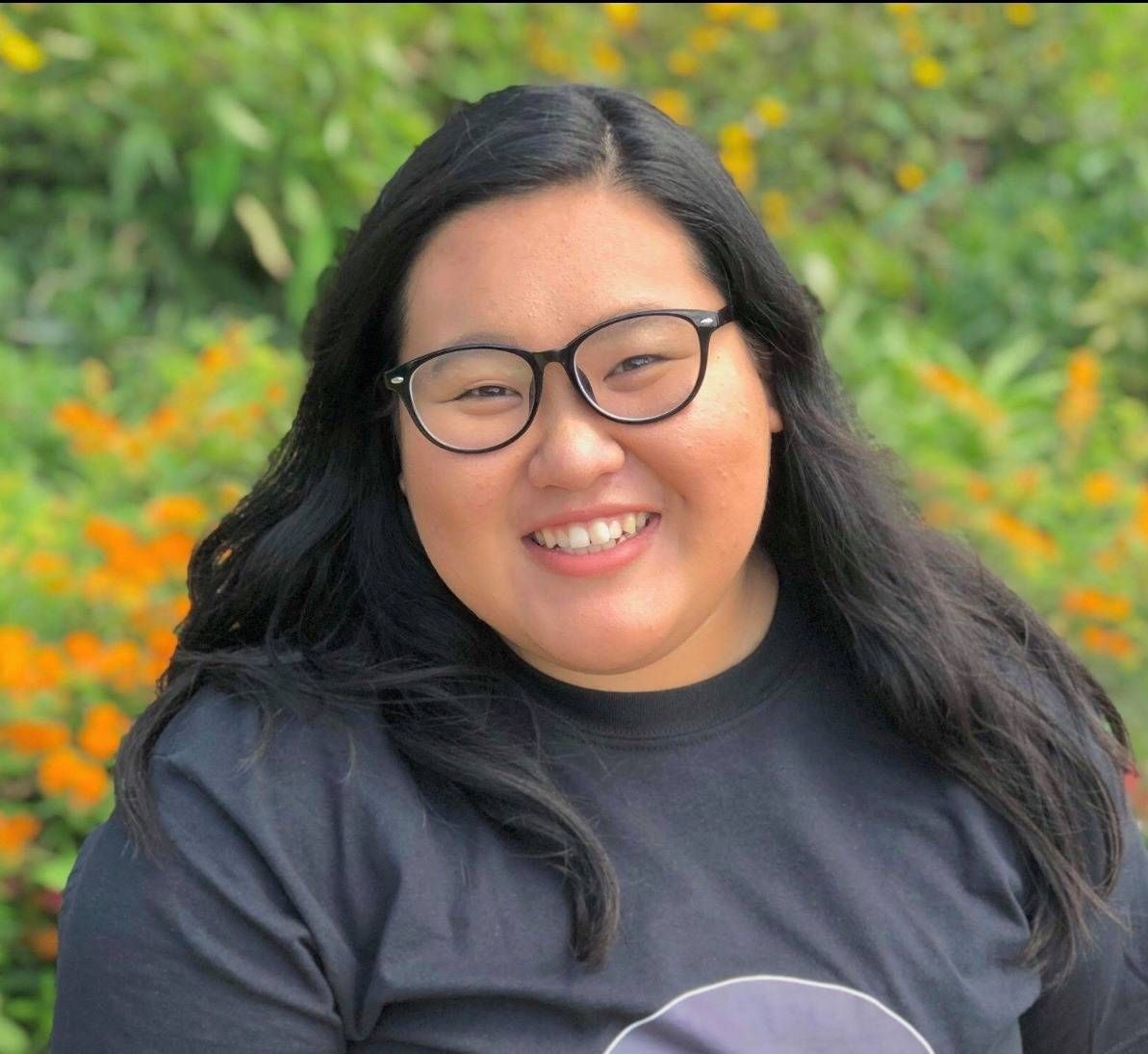A Long Minnesota History of Women Working for Justice
St. Catherine University students carry on a legacy of activism.

As we approach the 100th anniversary of women gaining the right to vote in the United States, we have an extra reason to reflect on the ongoing history of women’s activism in Minnesota. Our state was home to many women active in both the local and national suffrage movement. However, suffragists were not the only ones working to empower their fellow women.
The College of St. Catherine (now St. Catherine University) was founded by the Sisters of St. Joseph of Carondelet in 1905, under the leadership of Mother Seraphine Ireland. The University is named for St. Catherine of Alexandria, the fourth-century Egyptian lay philosopher who suffered martyrdom for her faith, and it was one of the first colleges specifically for women in the Midwest. Before women even had the right to vote, the Sisters of St. Joseph committed to providing a high quality education for their women students. That legacy continues today as St. Catherine University stands by its mission of “educating women to lead and influence.”
The St. Kate’s legacy goes beyond academics to inspire activism that stems from the example of the Sisters of St. Joseph. A notable example of love, persistence and leadership from the Sisters of St. Joseph of Carondelet can be found in the McDonald sisters, four biological sisters who also chose to all become Sisters of St. Joseph of Carondelet together.
The McDonald sisters - Brigid, Jane, Rita and Kate - grew up in Hollywood Township, Minn. If you’ve driven by Lake Street-Marshall Avenue Bridge on Wednesday evenings, you might have encountered one of the McDonald sisters still participating in the weekly demonstrations for peace that these social justice advocates founded.

As the McDonald sisters explain, their father was a part of World War I and their brothers served in the military. Sr. Jane McDonald said in an interview: “…we grew up believing in war. The radical change for me was that war was not the answer. We protest the violence and the war-based economy, but we are advocates for peace.” The sisters have lived most of their lives as fighters for social justice and doing what they believe is right has touched many individuals in Minnesota.
The fact that the McDonald sisters were invited as honored guests to speak at the opening ceremony of the 2019-2020 academic school year at St. Kate’s was no mere coincidence. Student activism at St. Kate’s is woven into the campus culture, inspired by the example of the McDonald sisters and other past Sisters of St. Joseph of Carondelet. Student Senate is a platform for many students to be involved with student activism.
Individuals like Andrea Duarte-Alonso ’19 follow in the footsteps of the Sisters. She says, “I knew I could make change in different places and make an impact [in] a different form… I used my own voice to be vocal about what was wrong with [the school’s] decisions that impacted students like me.”
Andrea learned that one of the best ways to learn how to advocate and become an activist is to be part of student government and clubs on campus. She says, “I did my best to advocate for what students need/wanted while in a position of ‘power’.”

Another young and passionate student advocate on campus is Manny Yang ‘21. “Growing up, I did not believe I had the confidence and brains to be a part of change. When I came to St. Kate’s, I saw so many individuals who were strong willed and not afraid to speak their minds. I thought of my peers as fearless leaders. I also wanted to become one.”
Manny was the diversity chair for Student Senate in 2019. Her responsibility was to be the voice for undergraduate students and hear their concerns about inclusivity on campus.
Being in a position of power as a voice for Manny’s community was empowering. She states, “With the confidence that I gained through many leadership roles, I challenged the status quo of what diversity and inclusion looks [like] at St. Kate’s.”

Jasmin Yangwaue ‘21, a current junior at St. Kate’s, joined Student Senate in hopes of advocating for positive change. Jasmin states: “By joining Senate, I wanted to accurately represent the people I served. If I wanted change on a federal level, I needed to start within my own community.”
Jasmin joined Student Senate in her first year at St. Kate’s as Commuter Senator. Jasmin was compelled to do more for her community, and campaigned to be Student Senate President 2020-2021 and won.
Jasmin states, “Through the darkness, we were able to stand together as a community to support those who wanted to create change on campus. Together, we stood as a community to show that our commitment to social justice was much greater than this pandemic.”

These students all showcase a strong will and resilience in creating a community that they wish to see come true for themselves and others from participation in student activism. As a result, they carry on the legacy of the McDonald sisters and the Sisters of St. Joseph of Carondelet who founded St. Kate’s in 1905, before women had the right to vote.
Watch the Minnesota Experience documentary, Citizen, which explores the multigenerational march of Minnesota women and all they hoped would come with the vote.
Editor’s note: This story – and others in the collection, Then & Now: Reflections on Women’s Suffrage – was written by a St. Catherine University student in the Public Relations Writing class held in the spring of 2020. The piece has been minimally edited to preserve the integrity of the student’s perspective. We hope you enjoy discovering what the next generation of writers, historians and activists has to say about the impact of the women’s suffrage movement then and now.

This story is made possible by the Arts and Cultural Heritage Fund and the citizens of Minnesota.
As Minnesotans look for ways to show their support for healthcare workers on the front lines of the COVID-19 pandemic, we took a look back in time to celebrate the contributions that four women – all named Ruth – made to the state’s public health system.
Just 39 words in length, the 19th Amendment to the U.S. Constitution gave women the right to vote when it was passed on June 4, 1919 and enacted on August 26, 1920 – but its passage was fraught with decades of legal challenges and intense demonstrations in which women activists sometimes put their lives directly on the knife’s edge. Explore a timeline contributions of Minnesota women to the passage of the 19th Amendment.
